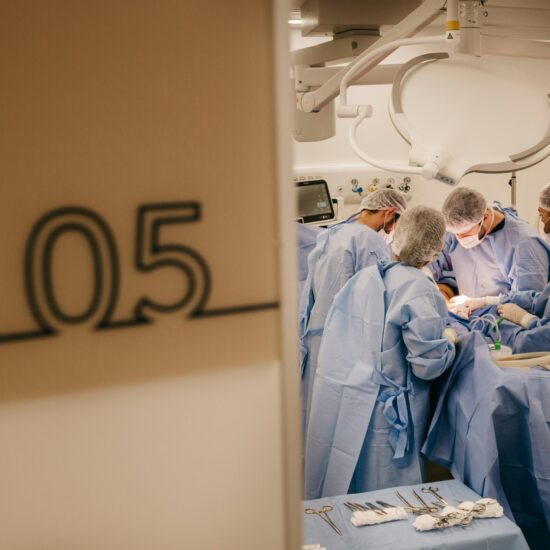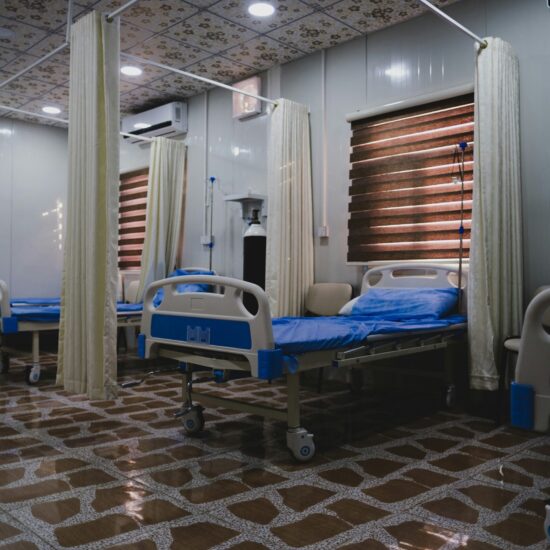Jim Stubenrauch is a CHMP senior fellow. Follow him on Twitter: @jimstuben.
 It was nine o’clock on Sunday morning, October 14, and an audience of young cancer survivors, their parents and siblings, and physicians, social workers, and other clinicians were gathered in the spacious third-floor library of the New York Academy of Medicine, listening to a keynote address by reality television star Kathy Wakile.
It was nine o’clock on Sunday morning, October 14, and an audience of young cancer survivors, their parents and siblings, and physicians, social workers, and other clinicians were gathered in the spacious third-floor library of the New York Academy of Medicine, listening to a keynote address by reality television star Kathy Wakile.
CHMP senior fellow Joy Jacobson and I were there, too—and no, we hadn’t accidentally wandered into an episode of The Real Housewives of New Jersey.
The occasion was the first-ever “Campference”—part camp, part conference—of the Children’s Brain Tumor Foundation (CBTF), an organization dedicated to improving “the treatment, quality of life, and the long-term outlook for children with brain and spinal cord tumors.” The CBTF, which marks its 25th anniversary this year, supports research, education, and advocacy to help both survivors and their families.
Ms. Wakile told a quietly dramatic story about a family vacation eight years ago that turned into a nightmare when it was discovered that her 10-year-old daughter, Victoria, had a brain tumor “the size of a tennis ball.” Ms. Wakile spoke fervently of wanting “to give her daughter a life of purpose.” Victoria underwent 10 hours of surgery to have the tumor removed. The growth was benign and, apparently, there were no serious aftereffects. Victoria Wakile—also on hand and looking bright and healthy—is now in her first year of nursing school.
Kathy Wakile leverages her celebrity to help organizations like CBTF and the National Brain Tumor Society, which, she said, receives a portion of the proceeds from sales of her Goddess Eye jewelry line. In closing, she urged the audience members to share their own stories of illness and recovery. “You can’t imagine,” she said, “how your story can change someone else’s life.”
And that’s why Joy and I were there: to help some of the parents and siblings tell their stories. It was our first opportunity to offer to non-clinicians the reflective writing we’ve been bringing to nurses and nursing students. We were excited at the prospect. Our sessions were scheduled for the afternoon, so we could spend the morning observing some of the presentations and small group sessions. After the keynote, Dr. Anita Nirenberg—a professor at Hunter-Bellevue School of Nursing and a CBTF board member—moderated a panel of oncology researchers who discussed new treatments in the emerging field of pediatric neuro-oncology.
Next, Joy and I attended an excellent survivors’ group led by Stacia Wagner, LSW, CBTF’s senior director of survivor services. The session included a Q&A with a panel of four young adult survivors, who discussed how they deal with navigating the medical system and managing the worries of parents and peers. Know your medical history, they advised. Do you know what kind of tumor you had and what kind of treatment you received? What still scares you about follow-up examinations and doctor’s appointments? How do you maintain vigilance about symptoms without succumbing to “paranoia” about a recurrence of illness? It was heartening to see these young people supporting one another and speaking so openly about the challenges they face.
After lunch, Joy and I met with small groups of siblings and parents, respectively, for an hour of writing and reading aloud. In my meeting with the parents I explained that my goal was to share a writing technique designed for both personal exploration and stress management, based on the “healing narrative” detailed in Louise DeSalvo’s Writing as a Way of Healing: How Telling Our Stories Transforms Our Lives. Each parent wrote a detailed, moving account of an incident in the larger illness narrative—the onset of illness, the end of treatment, the moment when a recurrence of illness was discovered.
All in all, a great experience. We’re looking forward to meeting soon with a young survivors’ support group. We’ll keep you posted.










Linda Wachtel / October 24, 2012
Sounds amazing thanks for sharing this!!
/
Nicky Guiliani / February 11, 2013
Headache is the common symptom that is found with 46% of patients with tumors. Still there is no specific reason is detected for the occurrence of brain tumor. Only a mild headache of occasional period is not a reason to brain tumor. You should consult to your doctor if your headaches are different than you’ve ever had, with nausea or vomiting. In these diseases if you feel discomfort in reaching up to the bathroom then it is matter to tell your doctor.^
Most popular content provided by our very own webpage
<http://www.foodsupplementcenter.com/forskolin-for-weight-loss/
/